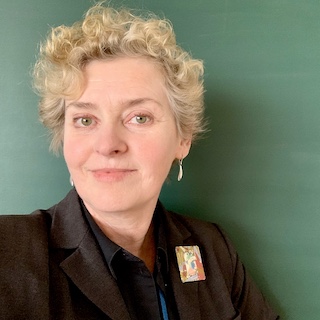
Alex Burke
Shizuoka JALT, May 29, 14:00-16:00
Learning differences affect how students learn, study, express and organise themselves: what suits a neurotypical student, could be a barrier to a neurodiverse one. In this session, we will cover what it’s like to have dyslexia, dysgraphia, ADHD, dyspraxia, autism, and differences in vision, and small changes in teaching practices that can help all your students. Learning differences affect about 10% or more of the population, so you probably have one or more neurodiverse students in your class now. Bring your question and let’s talk.
Alexandra Burke has taught at all levels of the Japanese public education system from kindergarten to university since 2005. She has spent thousands of hours team teaching. In that time, she has closely observed classroom interactions, and talked with students about which activities and methods increase their autonomy and confidence and noticing which created barriers for neurodiverse students. Based on wide reading of international best practice on inclusive teaching, in collaboration with Japanese colleagues, she has trialed a number of culturally appropriate changes to methods and classroom management that promote inclusion. Her professional background is public policy and equitable access to services. She has presented within Japan, overseas and currently teaches at three universities.
At JALT 2020 she won two Michele Steele Best of JALT Chapter Awards for inclusive teaching presentations. She also won Best Poster awards at the 2019 and 2020 JALT International Conferences, sharing the 2019 award with co-presenter Kirika Kushiyama.
This meeting will be held online. The Zoom link will be made available on the shizujalt homepage ten minutes before the meeting.
